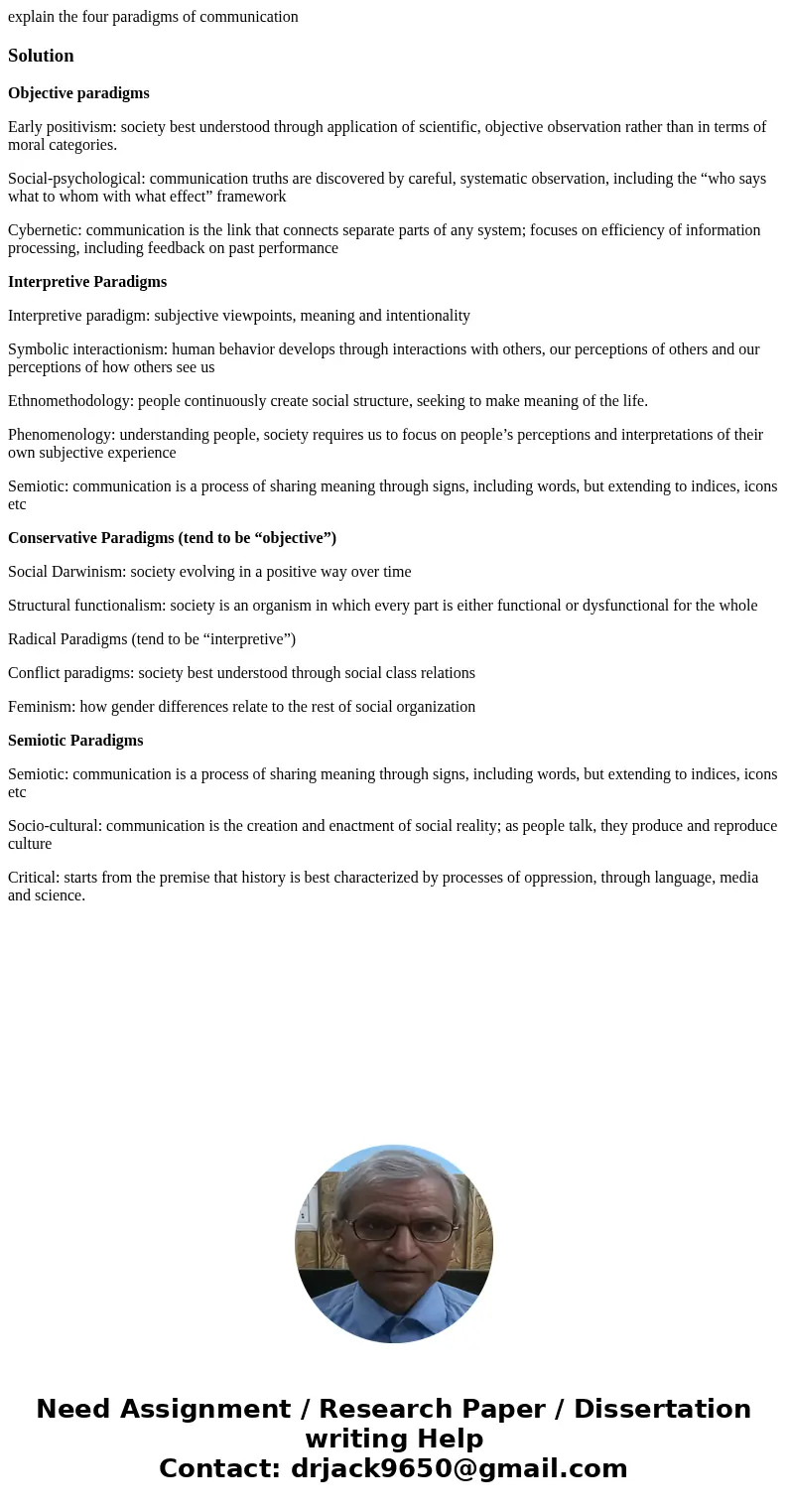explain the four paradigms of communicationSolutionObjective
explain the four paradigms of communication
Solution
Objective paradigms
Early positivism: society best understood through application of scientific, objective observation rather than in terms of moral categories.
Social-psychological: communication truths are discovered by careful, systematic observation, including the “who says what to whom with what effect” framework
Cybernetic: communication is the link that connects separate parts of any system; focuses on efficiency of information processing, including feedback on past performance
Interpretive Paradigms
Interpretive paradigm: subjective viewpoints, meaning and intentionality
Symbolic interactionism: human behavior develops through interactions with others, our perceptions of others and our perceptions of how others see us
Ethnomethodology: people continuously create social structure, seeking to make meaning of the life.
Phenomenology: understanding people, society requires us to focus on people’s perceptions and interpretations of their own subjective experience
Semiotic: communication is a process of sharing meaning through signs, including words, but extending to indices, icons etc
Conservative Paradigms (tend to be “objective”)
Social Darwinism: society evolving in a positive way over time
Structural functionalism: society is an organism in which every part is either functional or dysfunctional for the whole
Radical Paradigms (tend to be “interpretive”)
Conflict paradigms: society best understood through social class relations
Feminism: how gender differences relate to the rest of social organization
Semiotic Paradigms
Semiotic: communication is a process of sharing meaning through signs, including words, but extending to indices, icons etc
Socio-cultural: communication is the creation and enactment of social reality; as people talk, they produce and reproduce culture
Critical: starts from the premise that history is best characterized by processes of oppression, through language, media and science.

 Homework Sourse
Homework Sourse